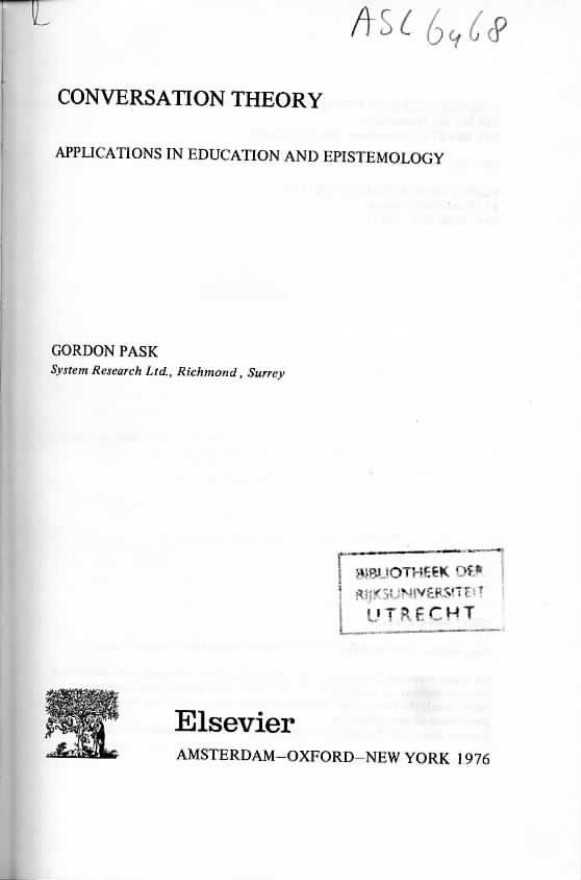Gordon Pask: Conversation Theory. Application in Education and Epistemology (1976)
Filed under book | Tags: · communication, cybernetics, education, epistemology, knowledge, knowledge production, learning

“The argument in this book aims to apply a body of cohesive and interpretable ideas, developed over the last dozen years or so, to issues of significance in educational psychology and epistemology. The history and development of these ideas, which emerged from experiments on perceptual motor learning, group interaction and sequential choice (as well as more obviously relevant studies of learning, subject matter structuring and cognition), are described in two previous books (Pask 1961, 1975a). But the main themes are crystallised in a monograph (henceforward called ‘the previous monograph’), Pask 1975b, Conversation, Cognition and Learning, which is part of the present series. In fact, the previous monograph marks a point of departure, for the notions cling together well enough to count as an empirically supportable theory: Conversation Theory.
Ideally, perhaps, Conversation, Cognition and Learning should be read first. But there are some 600 odd pages of it, including some lengthy appendices, and provided the reader will take various statements on trust, it is quite possible to start with this book. Conversation, Cognition and Learning can be regarded, with equal legitimacy, as an essay in man/man and man/machine symbiosis or as an essay upon education, learning and the like. In contrast, the present book is an application study and is unambiguously oriented towards the areas of education, its psychology and epistemology. The Introduction provides the essential groundwork, and for those who have read Conversation, Cognition and Learning, it bridges the gap between the two volumes.” (Gordon Pask, from Preface)
Publisher Elsevier, Amsterdam-Oxford-New York, 1976
ISBN 044441424X, 9780444414243
402 pages
via pangaro.com
PDF (updated on 2012-7-16)
Comment (0)Leave a Reply

